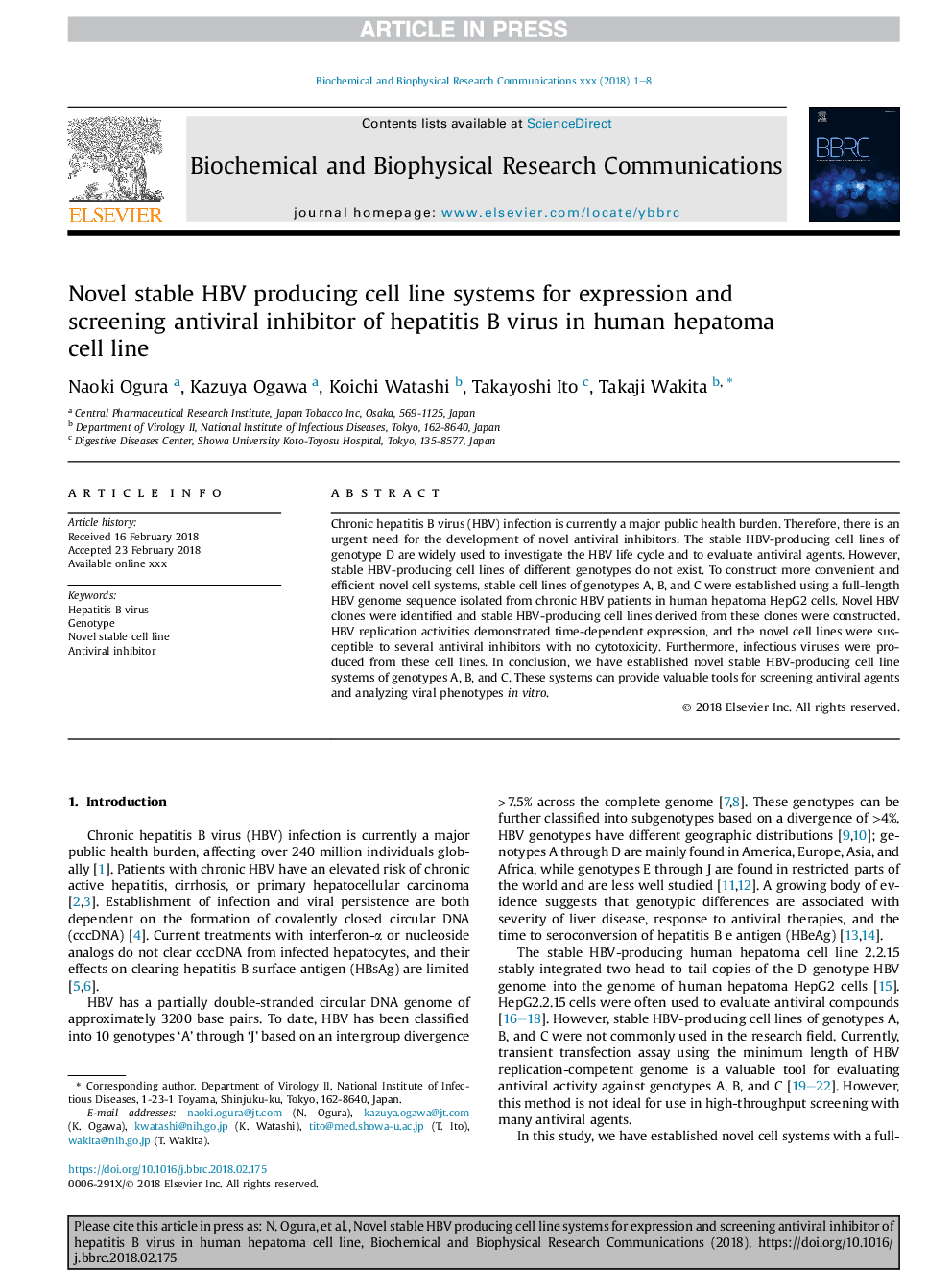| Article ID | Journal | Published Year | Pages | File Type |
|---|---|---|---|---|
| 8293695 | Biochemical and Biophysical Research Communications | 2018 | 8 Pages |
Abstract
Chronic hepatitis B virus (HBV) infection is currently a major public health burden. Therefore, there is an urgent need for the development of novel antiviral inhibitors. The stable HBV-producing cell lines of genotype D are widely used to investigate the HBV life cycle and to evaluate antiviral agents. However, stable HBV-producing cell lines of different genotypes do not exist. To construct more convenient and efficient novel cell systems, stable cell lines of genotypes A, B, and C were established using a full-length HBV genome sequence isolated from chronic HBV patients in human hepatoma HepG2 cells. Novel HBV clones were identified and stable HBV-producing cell lines derived from these clones were constructed. HBV replication activities demonstrated time-dependent expression, and the novel cell lines were susceptible to several antiviral inhibitors with no cytotoxicity. Furthermore, infectious viruses were produced from these cell lines. In conclusion, we have established novel stable HBV-producing cell line systems of genotypes A, B, and C. These systems can provide valuable tools for screening antiviral agents and analyzing viral phenotypes in vitro.
Related Topics
Life Sciences
Biochemistry, Genetics and Molecular Biology
Biochemistry
Authors
Naoki Ogura, Kazuya Ogawa, Koichi Watashi, Takayoshi Ito, Takaji Wakita,
